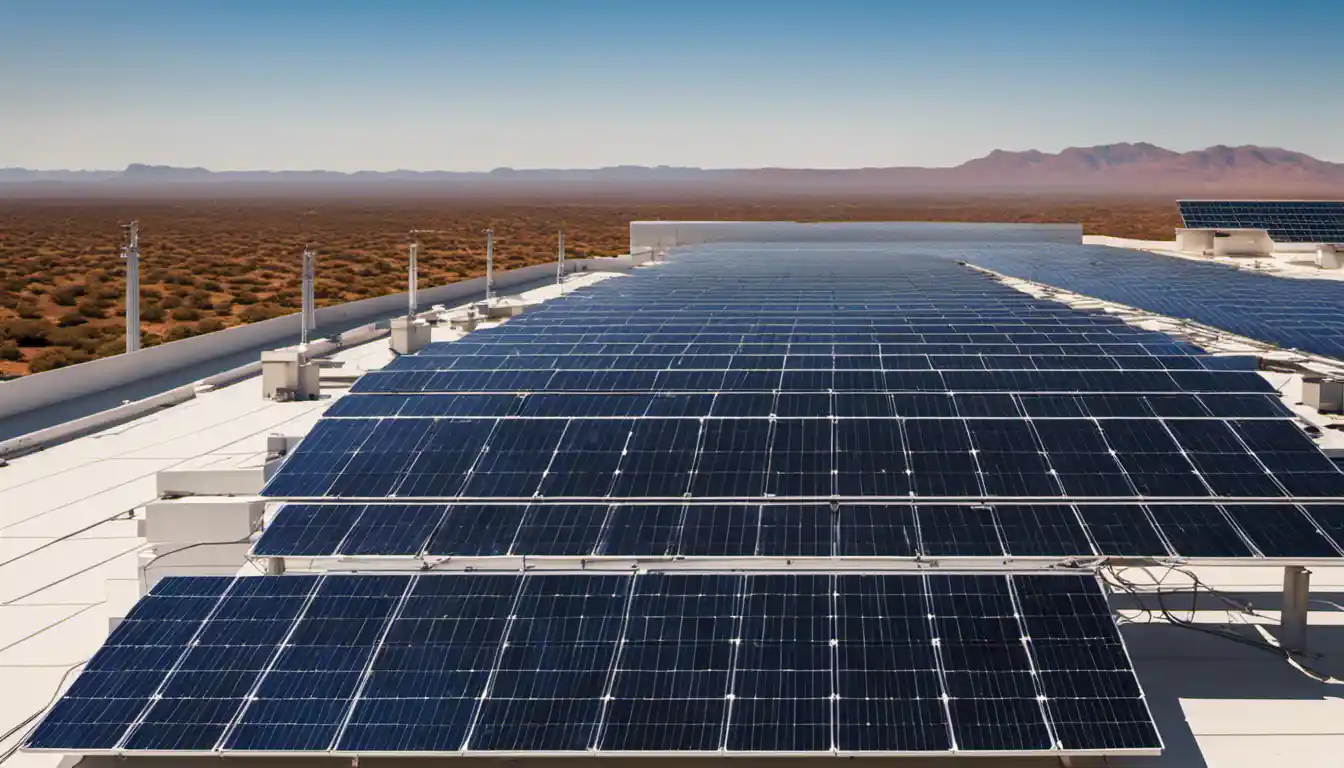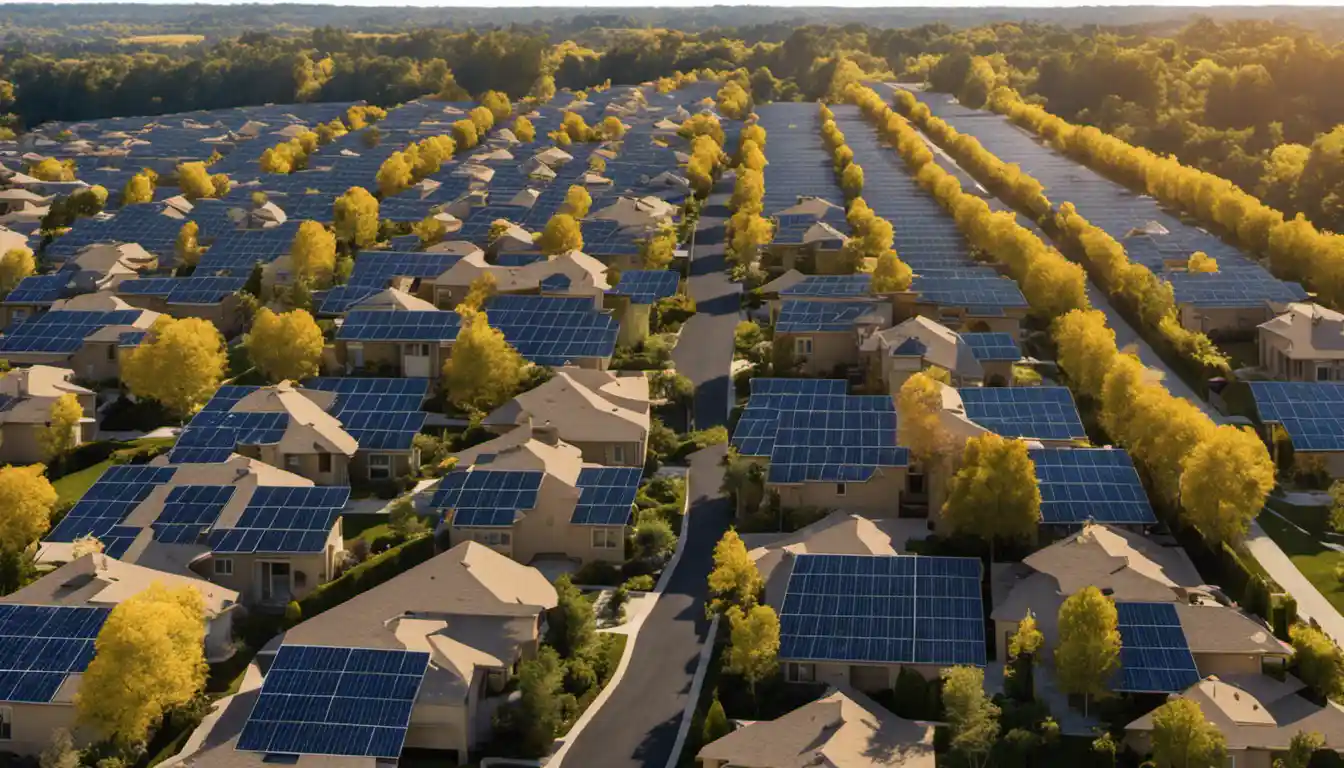What are Solar Panels?
Solar panels on the roof offer a sustainable and renewable source of energy, significantly reducing your reliance on traditional electric power while decreasing carbon emissions. They can greatly lessen your energy bills, and in some cases, you may be eligible for tax credits or rebates. Additionally, installing solar panels can increase your property’s value.
The Growing Popularity of Rooftop Solar Panels
In the past couple of decades, solar power has surged in popularity. People are becoming more aware and want to be more proactive about sustainable living, making rooftop solar panels a popular choice. The dramatic decrease in cost has made it accessible for a wider spectrum of owners. And the sight of gleaming solar panels on the roofs of commercial and residential buildings across the country is fast becoming a normal facet of our cities and suburbs.
Advantages of Solar Panels on Roof
Affordability of Solar Panels
One of the most significant benefits of rooftop solar panels is affordability. The cost of solar panels has dropped by more than 70% over the last decade. When combined with government incentives for renewable energy, the payback period can be quite short.
Saving Money with Solar Energy
The immediate reduction of your electricity bill is one of the most tangible benefits of rooftop solar panels. Depending on your solar system’s size and your electric usage, you could generate enough power to run your home entirely.
Keeping Lights on During Power Outages

Another solid advantage is continual power during outages if you have a battery storage system attached to your solar system. This feature provides a priceless sense of security, knowing that you can still power important appliances in your home even when the grid goes down.
Increasing Home Value with Solar Panels
Homes with rooftop solar panels sell for more than homes without them. Studies have shown that homes with solar panels can sell for up to 3-4 percent more than equivalent homes without solar panels.
Efficiency of Solar Systems in Various Climates
Even if your home is not in an area with perfect sunny weather, solar panels are designed to absorb sunlight—not heat—so they’ll still work efficiently under cloudy skies. In fact, they may even perform better on cooler, overcast days.
Potential for Energy Independence
Being tied to the grid means being at the whims of energy providers. By installing solar panels, you can move closer to energy independence.
Boosting Long-term Savings
Over the system’s lifetime, homeowners can save tens of thousands of dollars on reduced electric bills.
Low Maintenance Costs

Solar panels require minimal maintenance. Most manufacturers recommend just an annual inspection and cleaning to keep panels operating at their maximum efficiency.
Contribution to Community Benefits
By reducing the demand for fossil fuels, you’re helping to reduce pollution and combat global warming. This contributes to a healthier environment and community.
Protection Against Rising Power Prices
Rooftop solar panels protect against rising power prices in two essential ways. First, they lock you into a rate for the power your system generates. Second, they reduce your reliance on the grid, insulating you from price hikes.
Technological Improvements and Decreasing Solar Panel Prices
Recent advances in solar panel technology have led to more efficient and less expensive systems. This makes it an attractive investment opportunity, especially considering the long lifespan of solar panels—up to 40 years.
Environmental Benefits of Rooftop Solar Panels
Solar energy is a renewable resource, meaning it won’t deplete our planet’s resources like fossil fuels. By installing rooftop solar panels, you’re playing a part in addressing global climate change, improving public health, and creating a whole new tech industry.
Financial Incentives of Solar Installation

Besides the obvious reason of saving money on your energy bills, there are numerous financial incentives you can tap into when installing rooftop solar panels. These include solar tax credits and rebates, both of which help offset the initial cost and help you start saving from the installation day.
Solar Energy and Sustainability
Solar energy can play a central role in a future built on sustainable living. Every kilowatt-hour of solar-generated electricity reduces greenhouse gas emissions. You’re not just saving money — you’re saving the planet.
Who Should Consider Installing Solar Panels?
If you’re a homeowner with a relatively unobstructed south, east, or west-facing roof and are frustrated by ever-rising electric bills, consider installing solar panels. It’s an investment that pays back over time and benefits the entire planet.
Determining if Solar Energy is Worth the Cost for You
It’s important to balance solar panel costs and long-term savings. While the upfront costs may seem high, consider future energy savings, potential increase in home value, and environmental benefits.
Common Questions about Solar Panels
Some common questions about solar panels include their lifespan and functionality in rainy and winter conditions. On average, solar panels have a lifespan of 25-30 years, require minimal maintenance, and can function effectively despite poor weather.
To gain a comprehensive understanding of how to properly install your solar panels, visit our mounting solar panels page for a step-by-step guide.
All things considered, the benefits of solar panels on the roof significantly outweigh the challenges. Not only will you save on energy costs in the long run, but you’ll also contribute significantly to making our planet healthier.



